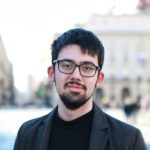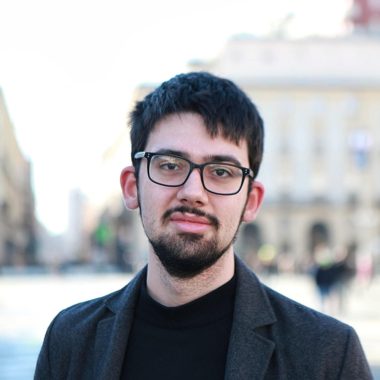As in much of the globalized world, the pandemic has become a battle not only of health, but politics as well. Italy has struggled with COVID for two years. The introduction of the Green Pass has marked a turning point in strategies adopted by the Government.
In April 2021 the European Union created the Pass which is a certificate with a QR code given after every vaccination.
From the beginning, Italy adopted one of the strictest policies regarding the Pass, making it mandatory for entrance to most events, travel and for college.
These measures in effect since August 2021, have undergone adjusttments.
In September the Government, despite having 71.5% of the population vaccinated, decided it was not enough and further encouraged vaccinations by making the Green Pass mandatory to work. This had already been in effect for health workers, but it was a shock for everyone else, and many of them ran to get vaccinated.
Now with the 78% having received two doses, the state of vaccination seems to be at a good point, as the remaining 22% is largely under 18, and the shot is not mandated for students below college.
However the Government is trying to mount pressure on adult people to get vaccinated and so decided to distinguish from January 10th 2022 three different kinds of Pass: a simple Green Pass (lasting 48-72 hours) you can get thanks to a swab, a Super Green Pass after two doses, and a Mega Green Pass after three.
The first one is quite useless, but the trade unions managed to let it remain valid at least to work in not-at-risk positions. The second is required for all remaining indoor activities and sports, except discos and visits to retirement houses, where the Mega Green Pass is compulsory.
The Green Pass, in all his three forms is compulsary for those over twelve.
This has prompted many to protest. Many people, who are not Covid deniers or against the Green Pass in general, found it difficult to accept vaccination for their sons and daughters. That’s because of the great debate in Italy, as well as in the rest of the world, whether the vaccine is safe for young people.
The Government has however not revoked its steps and, despite protests, the situation for teenagers hasn’t changed.
THE POLITICS BEHIND THE PASS
All these measures have been taken by the current cabinet, headed by Mario Draghi, former director of the European Central Bank and manager for J.P. Morgan. Draghi has shown little willingness to dialogue with people opposing the measures and he was largely supported by the press in Italy which treats him as kind of a father to the nation.
Draghi has extended the restrictions with political wit. Indeed, he didn’t impose the complete set of regulations at the beginning , but gradually, as he knew opposition in that way would be weaker.
However, the opposition didn’t miss the chance to have a word on the issue. And we’re not talking about parliament, which is largely supportive of Draghi. The one exception is the right-wing party – the Brothers of Italy.
The real opposition has come from the street, with thousands of people gathering in every major city weekly since August, and from workplaces, especially in the health system and primary schools, where thousands of doctors, nurses and teachers refuse to get vaccinated, believing the vaccine is still experimental.
The protesters have two main themes, sometimes intertwined. One: the Green Pass is against the law because it makes the vaccine mandatory without saying it clearly, an evasion of basic Italian law; Two: the vaccine is experimental.
Using these two ideas the initial gatherings became a movement, with many opinion leaders, none of whom have been officially recognized or met by the established authority.
Among the opinion leaders are jurists, MPs, philosophers, managers and so on, people said to be respectable and high-ranked in the social ladder. Ugo Mattei, a jurist who has called Draghi a criminal, has received awards for his research by the President of the Republic and he studied at Berkeley, Cambridge and Yale.
It’s like one group of elites against the other. Because of these social characteristics, it is not known whether the protest movement will succeed. It is one thing is to write a column, another to change official policies.
Mattei, and other opinion-leaders, philosopher Agamben, manager Freccero, philosopher Cacciari are not fascist, but many fascists are in the movement and use it for their political purposes.
Giuliano Castellino, member of Forza Nuova (New Power) a fascist movement led by a former black-terrorist, is the one who guided the demonstration in Rome, while in Turin it is not clear what are the links between the local group against Green Pass “La Variante Torinese” (Turin’s variant) and some far-right politicians who often show up at the demonstrations.
Castellino and “La Variante Torinese” held rallies with thousands of people, something which Mattei, Agamben, Freccero & Co. never did.
In this mess the Green Pass battle seems like an opportunity for many to build a political career out of nothing (Forza Nuova has never reached 1% at election time.)
In the meantime Draghi can sleep well, because, while he can’t forbid the demonstrations, the movement is already struggling through its divisions. And, as the Romans stated wisely, “divide et impera”, Divide and Rule.
This is the scenario under which the political battle on Green Pass is conducted, with many protagonists and interesting plots. But the danger in this situation is to forget the main topic, the virus, and our primary need to stop it. The vaccine up to now seems to be the only way to tackle the pandemic and with this knowledge every effort should be to have universal vaccination.
Italy has been one of the countries with more cases and fatalities and all this debate about the Green Pass, and so on, risks making people forget about it. And this is the danger we should totally avoid.
Author
-

Dario Pio Muccilli is the Star-Revue’s Italian correspondent, based in Turin. Email him at muccillidariopio@gmail.com
View all posts
Dario Pio Muccilli is the Star-Revue’s Italian correspondent, based in Turin. Email him at muccillidariopio@gmail.com









